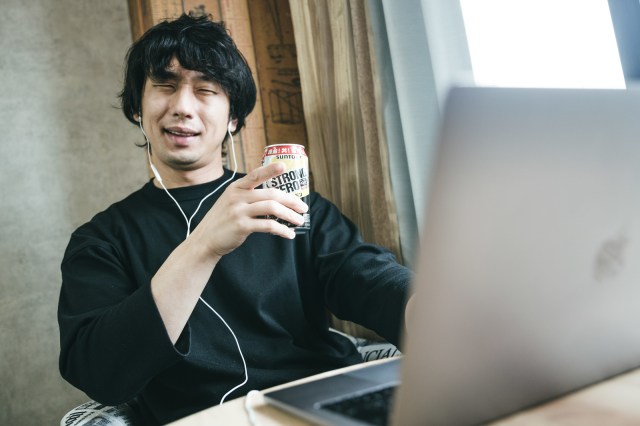Government survey finds teleworking at least once per week raises Japanese worker happiness level

On the flip side, the number of mental health illnesses diagnosed that are attributed to work-related stress also continues to rise.
Long working hours and poor work-life balance are problems that Japan’s workforce continues to grapple with, even after measures such as mandated lights-out policies and revised child care laws have been implemented. To share the latest findings on worker happiness and health resulting from this culture of overwork, the Ministry of Health, Labour and Welfare released this year’s karoshi hakusho, or death-from-overwork report, on October 21. This installment is particularly intriguing due to many workplaces’ continued practice of allowing workers to partially telecommute as a result of the pandemic.
▼ There’s no news yet on whether working from home also promotes better posture while sitting.

In order to investigate the potential influence of telecommuting on worker happiness, the Ministry surveyed 10,000 working people nationwide about the frequency of their remote work and their happiness levels since October 2021. On a scale of 10 (with 10 indicating the highest happiness level), those who don’t work remotely at all rated their happiness level as an average of 6.2 (men) and 6.4 (women). Those numbers increased to an average of 6.6 and 6.8 respectively for those who responded that they work remotely once per week. Finally, for those who work remotely two to three times per week, workers of both sexes indicated an average of 6.7.
The Ministry further shared that the tendency for workers’ happiness levels to rise with more remote work is related to reduced stress from commuting to the workplace, the ability to spend more time with their families, and increased sleep.
▼ We’re fairly certain that sneaking drinks while working from home is not one of the reasons for increased happiness, but we can’t say for sure.

On the other hand, the report also highlighted an increase in the number of mental illnesses such as depression that were diagnosed among workers and directly linked to work-related stress being officially classified as occupational injuries or deaths. The number of these diagnosed cases now stands at 629, which is the highest ever recorded and nearly double what it was a decade ago. The industries with the highest proportions of these cases were the medical professions and social services (22.6 percent) and manufacturing (16.9 percent).
The Ministry of Health, Labour and Welfare continues to raise awareness to combat these issues by releasing policies that protect workers against power harassment in the workplace and long working hours. In addition to companies allowing their workers to maintain flexible telecommuting arrangements, another next step for them would be to actually allow workers take the vacations that they deserve.
Source: TBS News Dig/Livedoor News
Featured image: Pakutaso
Insert images: Pakutaso (1, 2)
● Want to hear about SoraNews24’s latest articles as soon as they’re published? Follow us on Facebook and Twitter!
Credit:

0 comments:
Post a Comment